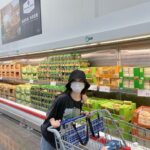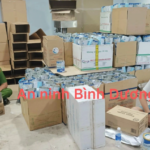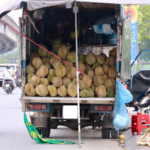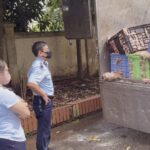Counterfeit Drugs Mainly Detected Through Retail Channels
On August 21st, the Committee on Culture, Society, and Human Rights, in collaboration with the Committee on Science, Technology, and Environment, and the Committee on People’s Aspirations and Supervision, organized a hearing on the implementation of policies and laws regarding the prevention of counterfeit drugs and food.
In his report at the hearing, Do Xuan Tuyen, Deputy Minister of Health, shared that the production and distribution of counterfeit drugs are not unique to underdeveloped nations but also occur in developing countries such as the United States and Europe.
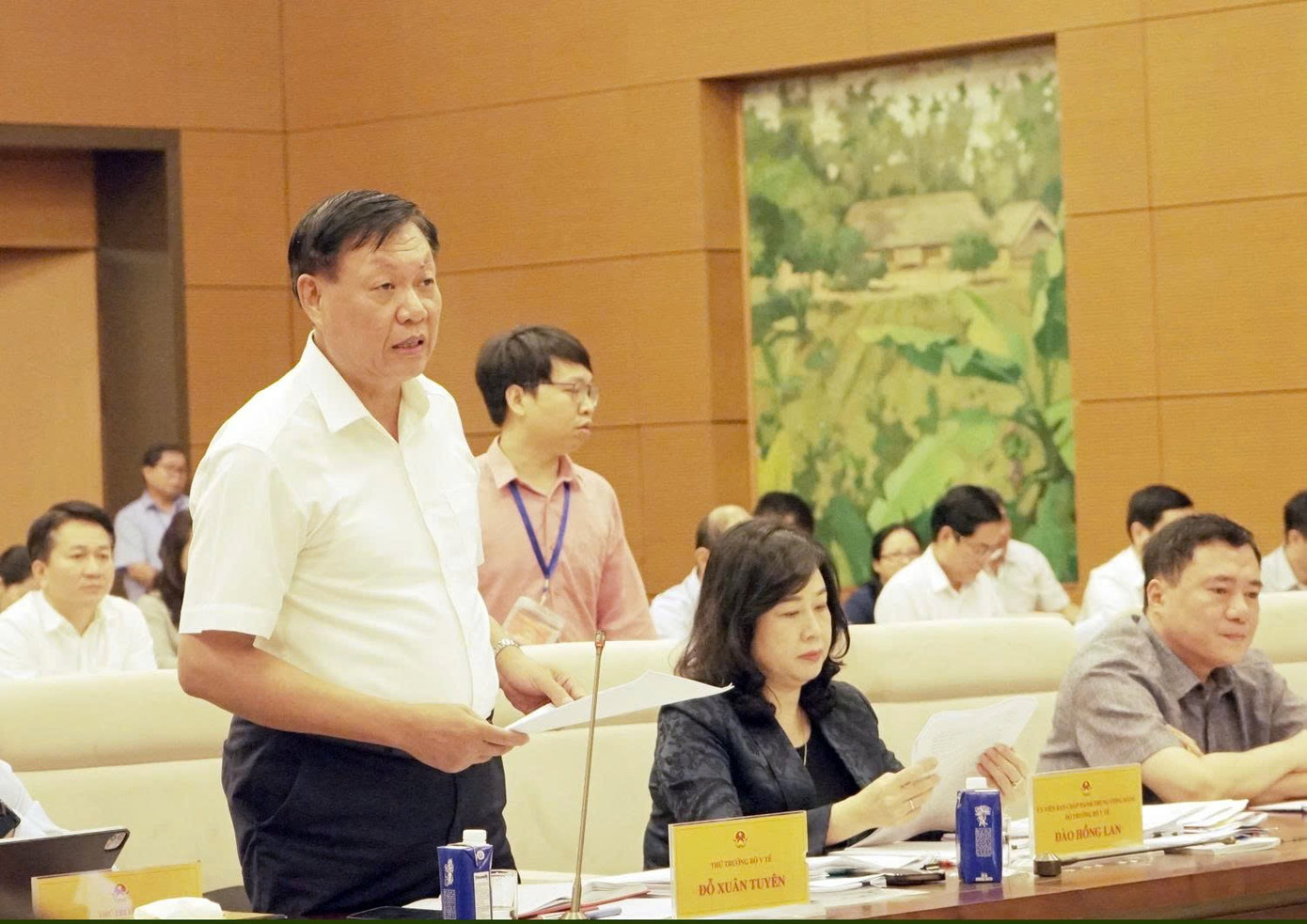
Deputy Minister of Health, Do Xuan Tuyen. Photo by PV
Annually, Vietnam tests 38,000 drug samples from various facilities, and the results show a significant decrease in the rate of counterfeit and substandard drugs, from 10% (in 1990–1991) to below 2% in recent years.
“Counterfeit drugs have not been detected in healthcare facilities but are mainly found in retail and e-commerce channels,” affirmed Deputy Minister Tuyen.
According to the World Health Organization (WHO), the rate of counterfeit and low-quality drugs in Vietnam is considered low to medium compared to global standards. However, the Ministry of Health also frankly acknowledged that there have been recent cases of selling counterfeit antibiotics in Hanoi and Can Tho, as well as numerous incidents of trading fake food items across various localities.
The reasons for these incidents were attributed to the increased demand from the people; the advancement of packaging printing technology and e-commerce, which facilitate the consumption of counterfeit goods, including drugs; and the exploitation of consumers’ psychology of seeking cheaper treatment options, disregarding legal regulations for personal gain and profit.
Regarding food safety, from January 1 to June 30, 2025, the Department of Food Safety (DFI) monitored 22,347 food products and found 741 substandard ones. The entire healthcare sector inspected 607,489 establishments, handled 9,790 violations with a total fine of VND 51.13 billion, suspended 128 establishments, destroyed products at 306 establishments, and transferred 18 cases to other agencies for handling.
According to the Ministry of Health, from January 1, 2024, to June 30, 2025, the Public Security Agency detected and handled several cases of producing and trading counterfeit health food products and those containing prohibited substances. Examples include the case of Kera vegetable candy, the production of fake milk at Rance Pharma International Pharmaceutical Joint Stock Company, and the case of “Producing, trading counterfeit goods as food, food additives, and violating accounting regulations with serious consequences” at MediPhar Company…
‘Just a Sneeze or a Runny Nose, and People Rush to Drugstores’
According to Mr. Tuyen, the consequences of detecting numerous cases of counterfeit drugs and food products not only severely impact people’s health but also erode their trust. “In some localities, when people buy products, they cannot distinguish between genuine and fake items. Even legitimate products are being counterfeited,” said Deputy Minister Tuyen.
The Ministry of Health has recently issued seven circulars guiding the implementation of the Law on Amending and Supplementing Several Articles of the Drug Law. Mr. Tuyen shared that the Ministry of Health discovered the drug counterfeiting ring in Thanh Hoa and then coordinated with competent authorities to handle the case. Similarly, the case of Kera candy, as Mr. Tuyen mentioned, was challenging and costly to inspect and test.
The Deputy Minister of Health also pointed out limitations in the current anti-counterfeiting efforts, noting that some localities still consider this solely the responsibility of the health sector. Additionally, legal regulations have not clearly defined the responsibilities of different ministries. “In foreign countries, people buy medicines with a prescription, but in Vietnam, just a sneeze or a runny nose, and people rush to drugstores,” Mr. Tuyen remarked.
He proposed that combating counterfeit food and drugs be considered a relentless political task. He also suggested enhancing supreme supervision and thematic coordination among ministries and sectors and promoting the movement of “the whole nation fighting against crimes.”
Furthermore, he emphasized the role of the Provincial People’s Committees in leading the entire political system of the locality to combat these violations, especially in the context of post-administrative reorganization.
Speaking at the opening of the hearing, Vice President of the National Assembly, Nguyen Thi Thanh, emphasized that counterfeit drugs and food are “hot” issues for every family and individual. She highlighted the significant harm these fake products inflict on the economy and considered them a peril. The most dangerous aspect is the long-term impact on the lives of those who consume them.
Ms. Thanh requested the hearing to identify challenges and propose timely solutions to address obstacles in prevention, advertising behavior, production, and distribution of counterfeit drugs and food.
The Double Standard Paradox of Vietnamese Agricultural Produce – Part 1: Focusing on Foreign Standards While Neglecting Domestic Ones?
A wide range of Vietnamese fruit and vegetable products are conquering some of the most demanding markets today, including the US, Europe, Japan, and China. However, a long-standing paradox persists: domestic consumption of agricultural produce in Vietnam often lacks defined quality standards.

